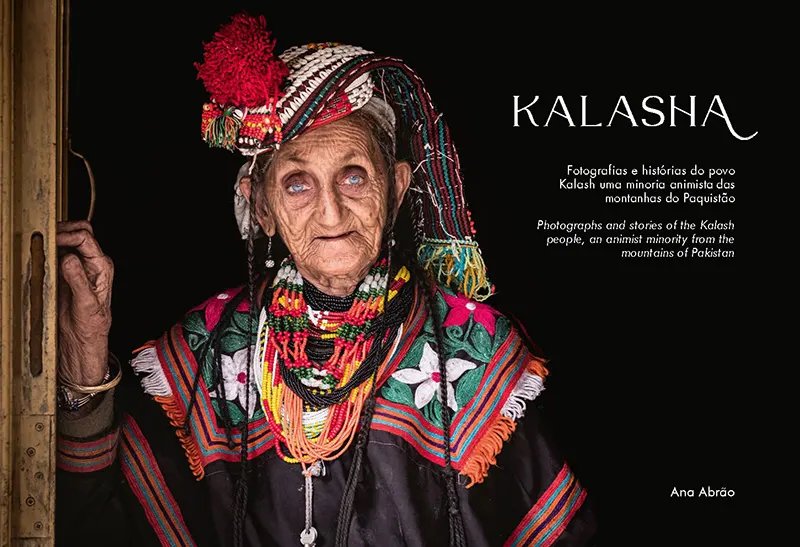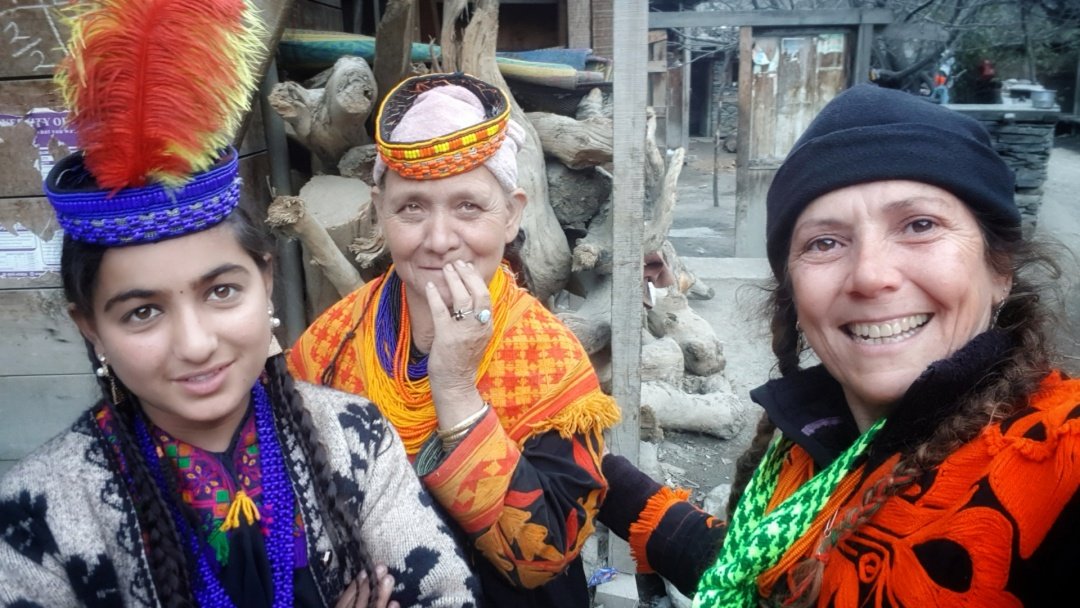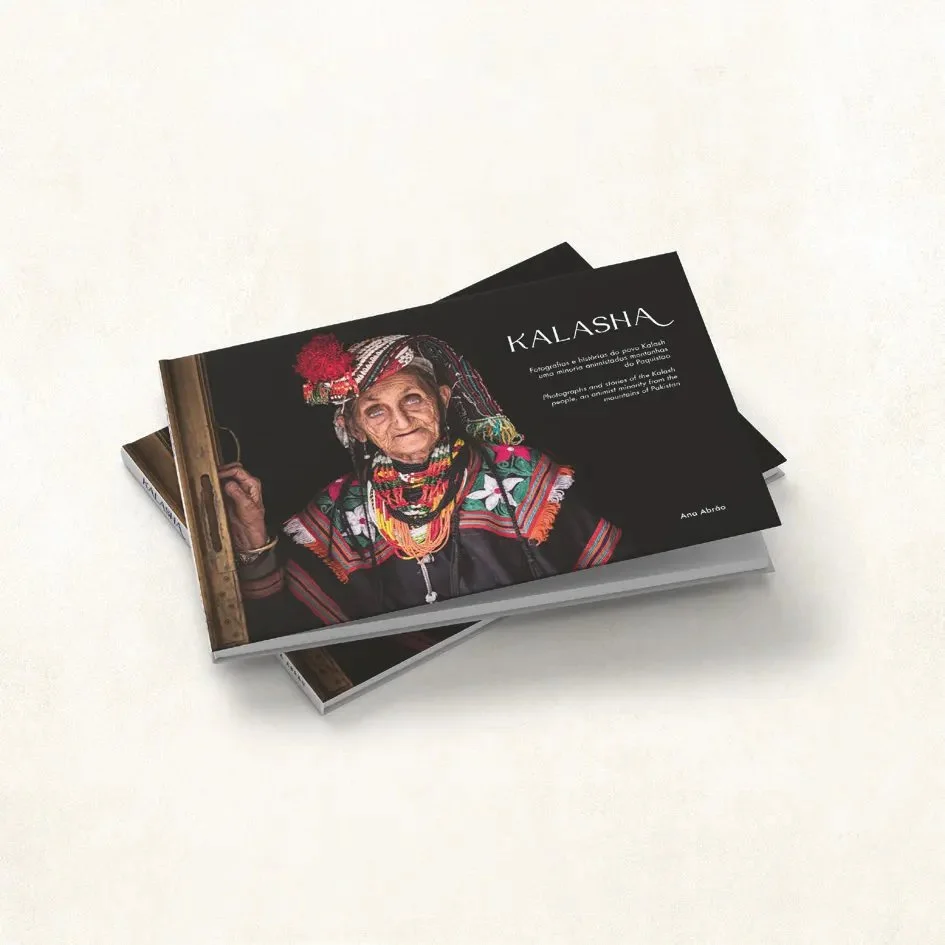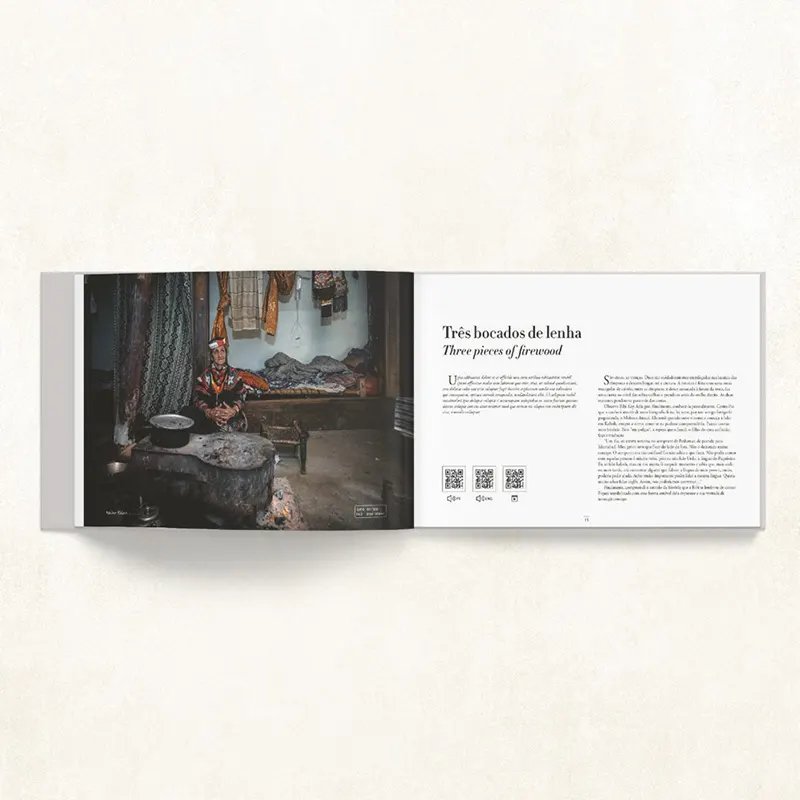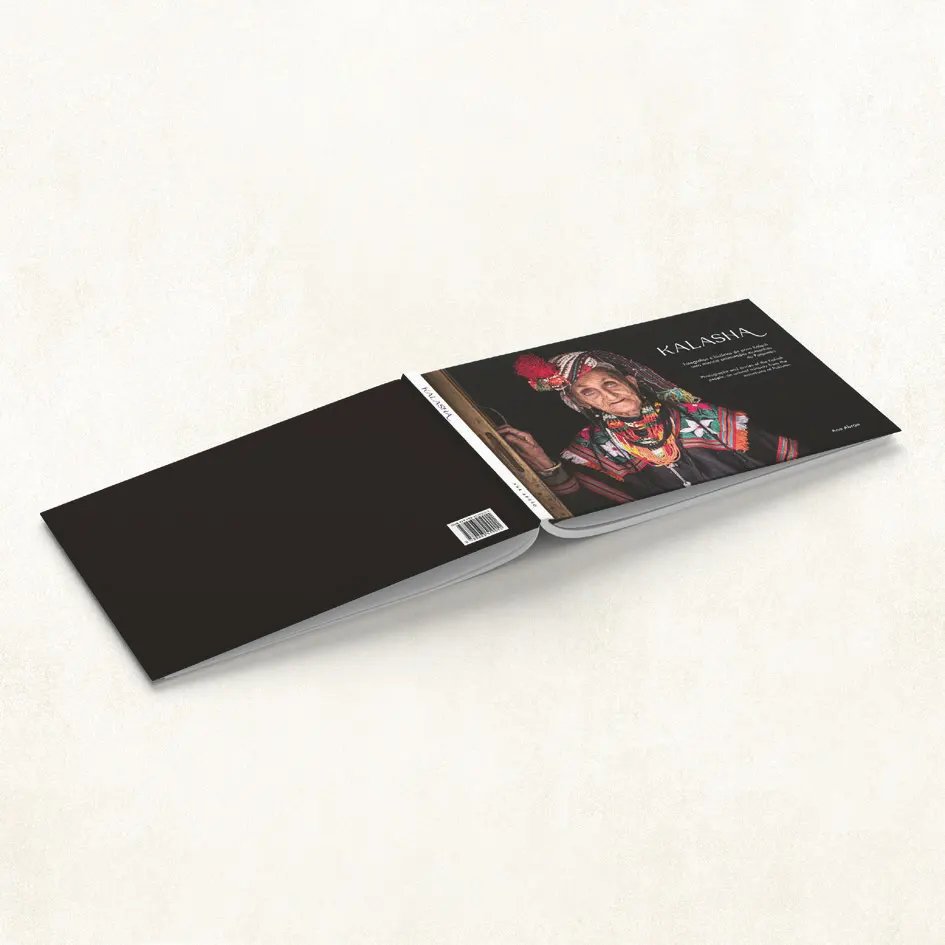KALASHA
Ana Abrão Kalasha's photographic book on the Kalasha people, who live in the remote mountains of Pakistan, serves as both an ethnographic text and a visual representation of their customs and habits. The book is a fascinating reportage, providing surprising discoveries about this unique population.
The Kalasha people live in the narrow strips of land between high mountainous walls crossed by streams called "rii". They are small herders and simple farmers, and their daily occupations revolve around their way of life. They live in wooden huts with walls covered with long mats woven with geometric designs. Their culinary habits and how they support themselves by sharing natural resources are also noteworthy. In one of Ana Abrão's many images, we can see a great stone hearth with a cooking pot on top, and in front of it sits the protagonist of this incredible world. This old woman with a wrinkled face is smiling, and her image is a stark contrast to our globalized consumerist world. The magnificent colors in the photographs stand out because of the costumes worn by the Kalasha women. Women of all ages, from young to old, wear costumes in shades of red, blue, ocher, and pink, creating a rainbow-like effect. They all wear headdresses adorned with multiple colors, with some having large feathers or pompoms, indicating their coquetry and elegance. The women also wear jewelry, including necklaces and embroidered shawls.
While Abrão was visiting, she saw the locals having tea and eating chapati focaccias with fresh cheese in their homes. She followed them to the stream where they were washing and took photographs at the old mill where an old woman was making flour. In the group, she also captured the creators of baskets, who would use them for the men´s purification ritual. Although the photographer dedicated a significant portion of the reportage to women and their talents, featuring dozens of artfully arranged photographs with vibrant colors against the black background of the pages, she did not forget the men. The men play a unique role in supervising the ancient Kalasha animist rites, which have their roots in the atavistic past and are an essential part of community life.
The main part of the book describes the funeral ceremony, prayers for the deceased, the dressing, and the procession to the final resting place. Through Ana's photographs, the Kalasha world comes to life, with the perfect backgrounds, a space created by the collective, where public and private are intertwined, and the people live their lives by adhering to age-old traditions. In a circle, we see the children preparing the symbols of the temple altar with ink, and they are surprised by Abrão in the small classroom while practicing their family dances and songs. In this age of paid tourist travel, even anthropology can be postmodern, a free piece of the vast Anthropocene. This book truly takes us to Pakistan, where precious and domestic stories are waiting to be discovered.
Batsceba Hardy
Join the author on a journey to the mountains of Pakistan, as she takes you on an immersive experience through photographs, sounds, and stories. The Kalash people, a pagan minority, are the focus of this extraordinary experience. They strive to preserve their cultural identity and resist the pressures of the country's Muslim majority. The culture of the Kalash people is closely intertwined with their religion, and their holidays are marked by unique celebrations. Through the author's eyes, you will witness traditional songs, tribal dances, and learn about a popular purification ritual associated with sacrifices. You will also discover how the Kalash people invite the souls of their ancestors to feed on fruits and nuts. Learning about another culture involves accepting and understanding differences. The book "Kalasha" is an opportunity to explore a week-long funeral, a Kalash school, and to meet the children and adults, young and old, of an extraordinary culture. It contains ten series of photographs, each accompanied by a story. These stories reflect the religious rites, celebrations, dances, songs, and beliefs of a welcoming minority. The images capture the details of a culture not immediately visible to the lenses of tourism travelers. The stories are first-hand accounts of the author's interactions with the local population and the genuine people with their admirable simplicity.
FEP Book Awards 2024
the book "Kalasha" is the winner! I can't express how happy and honored I am to have my book chosen by the FEP jury. My friend André Boto was kind enough to represent me at the award ceremony in Alesund, Norway. Thank you, Andre! This is the second highlight of the book "Kalasha", the first being an Honorable Mention by the IPA Book Awards in Los Angeles. Ana Abrão
